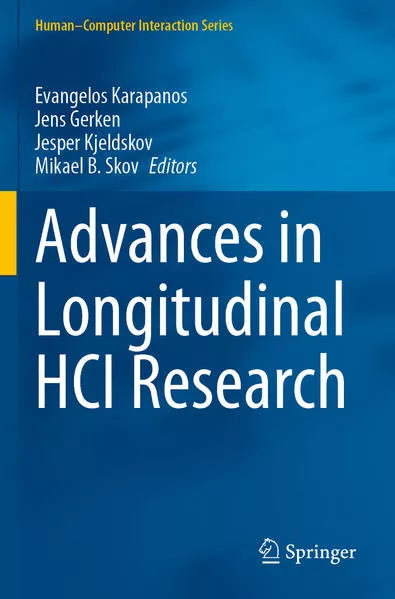
- Publikationen ca: 1
- Fragen & Antworten
Evangelos Karapanos
Jens Gerken is Professor of Media Informatics and Human-Computer Interaction at the Westfälische Hochschule in Gelsenkirchen, Germany. His interest and expertise about longitudinal research dates back more than 10 years and includes work aiming for a common taxonomy on longitudinal research designs as well as the design of tools and methods to apply longitudinal research.
Jesper Kjeldskov is Professor in Human-Computer Interaction and Head of Department of Computer Science at Aalborg University, Denmark. His work on research methods in Mobile HCI has been influential in the discussion of strengths and weaknesses of lab and field studies, and has advocated a mixed methods approach and extending the duration of studies from “snapshots of use” to longitudinal technology deployments in real world settings.
Mikael B. Skov is Professor in Human-Computer Interaction and research leader in the Human-Centred Computing Group at the Department of Computer Science at Aalborg University, Denmark. His work on research methods in studying and evaluating technology in real life or in-situ has been influential within HCI research, and has focused on various application domains among others mobility and smart homes.
Advances in Longitudinal HCI Research
Longitudinal studies have traditionally been seen as too cumbersome and labor-intensive to be of much use in research on Human-Computer Interaction (HCI). However, recent trends in market, legislation, and the research questions we address, have highlighted the importance of studying prolonged use, while technology itself has made longitudinal research more accessible to researchers across different application domains.
